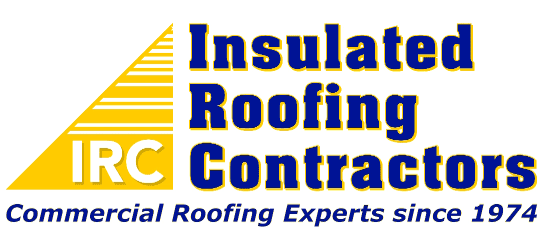Here at Insulated Roofing Contractors, we take safety extremely seriously. We take pride in maintaining the highest industry standards for employee safety. We are committed to maintaining the same degree of success in safety as we have in quality roofing services.
Every employee at IRC has to complete our entire training program. That program includes training for:
Fall Protection
OSHA has the fall requirements for Fall Protection: “Falls are the leading cause of work-related injuries and deaths among roofers. Working six feet or more above lower levels puts roofers at risk for serious injury or death if they should fall. A lack of fall protection, damaged fall protection equipment, or improper setup will increase their risk of falling from height.”
We follow all OSHA requirements in our training. This means that our roofers learn how to “inspect, erect/disassemble, and maintain the fall protection equipment involved in the work.”
Ladder Safety
We’ve all seen the movies where a character loses their balance on a ladder and falls over, getting a big laugh from the audience. However, in reality, ladder safety is no laughing matter. Our team is trained on properly using ladders to service every part of your roof.
OSHA 10 and 30 Hour
OSHA’s training program offers a 10 and 30-hour course that covers all of their safety protocols and presents those who complete the training with a completion card. At IRC, all crew management personnel (Superintendents, Foreman, and their assistants) receive 30-hour training every five years, while every crew member receives a 10-hour training course.
Hazardous Materials
Any roofer should be aware of how to identify and avoid any type of hazardous material that may be present on a roof. Their training gives them the knowledge to know what materials onsite may have dangerous chemicals and how to use and store them properly. From lead and asbestos to silica exposure, roofers are trained to protect themselves and others from hazardous materials as well as proper disposal.
Machinery Lockout / Tag Out
OSHA’s definition is as follows: “‘Lock out tag out’ (LOTO) protocols are specific practices and procedures to safeguard employees from the unexpected energization or startup of machinery and equipment or the release of hazardous energy during service or maintenance activities.”
According to OSHA, there are eight steps to properly conducting the LOTO procedure:
- Prepare for the shutdown
- Notify employees
- Shut down the equipment
- Isolate energy sources
- Apply LOTO devices to energy sources
- Release/control all sorted energy
- Verify the lockout – This step is vital and can be easily overlooked if not careful. DO NOT SKIP.
- Maintain the lockout
As roofers, we often work around air intakes to the building. Without properly locking out this equipment, it can draw odors into your building. Often we work around the power lines feeding your building which can expose our employees to injury.
Each employee must be trained on how to complete this process.
Respirator Program
Respirators are a significant part of protecting roofers due to the different materials and fumes they may breathe in while on a roof. These are the suggestions from OSHA that we follow in our training program:
- Respirator selection procedures
- Medical evaluations of workers to determine whether they are physically able to wear a respirator without adverse health consequences
- Fit-testing to ensure no contaminated air bypasses the filter elements
- Procedures for the proper use of the respirators
- Periodically, testing the air around our roofers to be sure they aren’t exposed to other potential contaminants and that we stay below any regulatory limits of exposure.
Ground Fault Circuit Interrupter
Ground Fault Circuit Interrupters, or GFCIs, are devices that trip electrical circuits at low amperage if they detect a ground fault or current leak, which could lead to electrocution. These are mandatory devices in any area where water may come in contact with circuits. Our employees are all trained to use and inspect these devices properly and safely.
Assured Equipment Grounding Program
This program covers all electrical devices not part of the building ground wiring grid. This includes extension cords, power strips, and any external power tools. It is a system used to inspect all tools’ conductivity for safety and to mark or dispose of defective or suspect electrical equipment. Any roofer using these items must also have a GFCI for protection.
Hazard Communication
Upon initial assignment and every year, all crew members receive HazCom and Global Harmonization training to understand the chemicals they may come in contact with on the job. In addition, IRC maintains a personalized database of Safety Data Sheets in English and Spanish. All employees have access to them on their phones.
Personal Protective Equipment
Commonly referred to as PPE, Personal Protective Equipment refers to equipment that protects from potential hazards. This training teaches a proper understanding of what to wear on the job, which includes everything from gloves and eyewear to respirators and coveralls.
Fire Protection
In case of fire, roofers need to know how to respond and the proper steps to protect themselves, others, and the property from further damage. In addition, everyone should know where fire prevention tools are in case of an emergency.
When you call IRC to work on your roof, you can take comfort in knowing that all our employees receive hands-on fire extinguisher and emergency response training annually. As a result, they are properly equipped to do the job correctly and safely.
Contact us today for all your commercial roofing needs!
